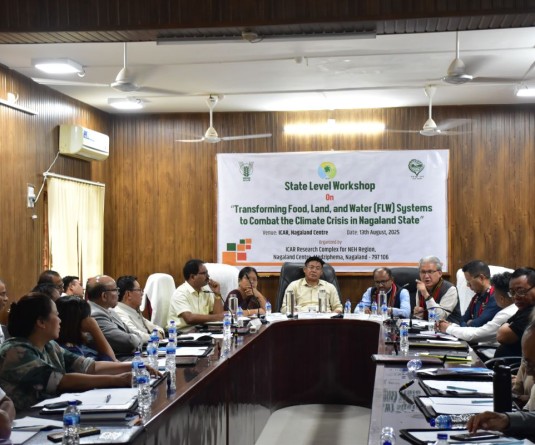
Dr T Esther Longkumer
Chief Technical Officer-Soil Science, KVK Phek, ICAR-NRC on Mithun
Solid waste management is a critical issue that affects the environment, human health, and the economy. The rapid increase in population, urbanization, and consumption patterns lead to a significant rise in the generation of solid waste. If not managed properly, solid waste can lead to environmental pollution, health problems, and economic losses.
Importance of Solid Waste Management:
Proper solid waste management is essential for maintaining a clean and healthy environment. It involves the collection, transportation, treatment, and disposal of solid waste in a manner that minimizes its impact on the environment and public health.
Challenges in Solid Waste Management:
Solid waste management faces several challenges, including:
1. Inadequate Infrastructure: Many cities and towns lack adequate infrastructure for solid waste management, including collection systems, transportation vehicles, and disposal facilities.
2. Lack of Public Awareness: Many people are not aware of the importance of proper solid waste disposal and the consequences of improper disposal.
3. Inadequate Funding: Solid waste management requires significant funding, which is often not available, especially in developing countries.
4. Limited Technology: Lack of appropriate technology and equipment can make it difficult to manage solid waste effectively.
Strategies for Effective Solid Waste Management
To address the challenges in solid waste management, several strategies can be employed, including:
1. Reduce, Reuse, recycle: Encourage individuals and businesses to reduce their waste generation, reuse products whenever possible, and recycle materials.
2. Implement Waste Segregation: Separate waste into different categories, such as organic, inorganic, and hazardous waste, to facilitate proper disposal.
3. Use Appropriate Technology: Appropriate use of technology and equipment, such as composting facilities and recycling plants, to manage solid waste effectively.
4. Increase Public Awareness: Educate the public about the importance of proper solid waste disposal and the consequences of improper disposal.
5. Encourage Community Participation: Encourage community participation in solid waste management through initiatives such as community composting and waste collection programs.
Effective solid waste management is very important for maintaining a clean and healthy environment. By implementing strategies such as reduce, reuse, recycle, waste segregation, and appropriate technology, we can minimize the impact of solid waste on the environment as well as public health. It is essential that individuals, businesses, NGOs and governments work together to address the challenges in solid waste management and create a sustainable future.






